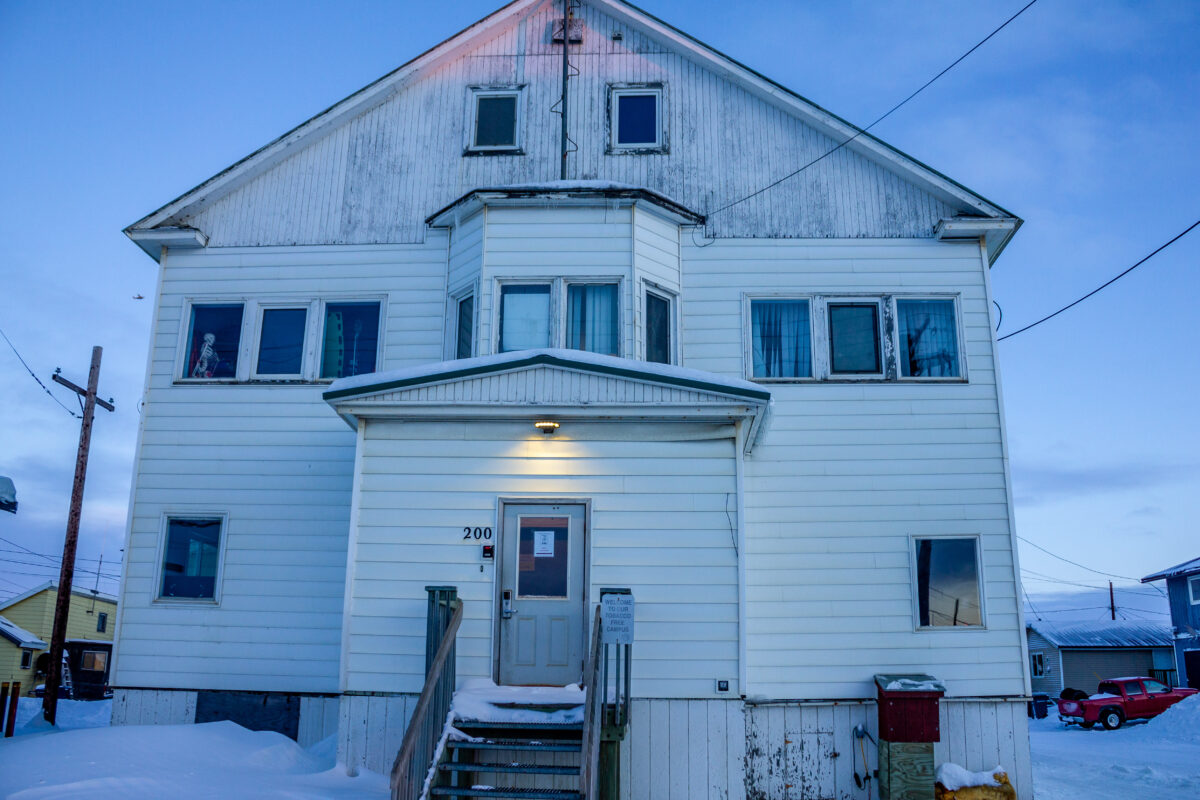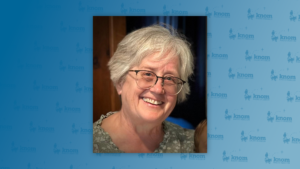The transient population in Nome has access to more services through places like the Norton Sound Health Corporation (NSHC) Day Shelter.
KNOM’s Emily Hofstaedter spoke with Day Shelter guests and staff to hear about how the shelter is impacting lives after one year of being in operation.
Robert Lincoln had exciting plans when he got his dividend check last November.
“I wanted to celebrate my fortieth birthday which happened in October.”
Lincoln caught a plane from his home in White Mountain, found a place in Nome with friends, and went out to the bars in the evening. But before long, Lincoln says, he overstayed his welcome and found himself with no money in Nome and nowhere to sleep.
“I found this place [Day Shelter] and decided to clean up and that took a little effort.”

He admits that he fell into a nearly annual cycle of coming to Nome, drinking too much, and becoming homeless until his family paid for a ticket for him to get back to White Mountain. But as of this January, Lincoln says using the Day Shelter and NEST have made a big difference in his life.
“I have a job as of last night (Jan 19) and a couple days ago I just got an apartment, so I do feel as though I’m getting somewhere.”
Guests come to the shelter for all sorts of reasons and lengths of time. They might be in Nome for medical reasons or to see family– others find themselves weathered in. Some guests are from Nome but have nowhere else to stay.
The Day Shelter is staffed by recovery coaches, like Shannon Klescewski. She sees herself as a support for guests: whether that’s finding them someone to talk to or connecting them with resources.
“If someone shows interest, I’ll ask them, ‘OK, what do you want to do today? What do you need to do next to get to your goal?’ ”
In September, NSHC acquired $167,000 in federal funding for the Shelter from the federal Health Resources and Services Administration which allowed for the hire of another Recovery Coach, according to Lance Johnson, the Behavioral Health Services Director at NSHC. Johnson says that funding also enables more options for medication assisted treatment, or M.A.T.. That’s a shot that can be used to reduce cravings for alcohol or opioids and could be an option for guests who struggle with those addictions.
Guests aren’t required to work with a coach and not all Day Shelter guests need one. Sometimes, Klescewski explains, engaging and supporting the guests means brewing coffee or simply being available to them.

There’s a dignity in the way that guests are treated, Robert Soolook of Little Diomede observes. KNOM spoke with Soolook in late December and he says that dignity makes guests feel like a community.
“I see the shelter now, its like bringing a family together: sharing, sleeping, and eating. And I’ve noticed in people their attitude has changed a lot. They’re a lot more friendly.”
Even out in town, Soolook thinks that guests are treating each other better. After about two months of staying at the shelter in Nome, Soolook went back to Little Diomede in December, where he is a hunter, tribal leader, and grandfather. This time he came with a round-trip ticket but in the past, he has struggled against weather delays to return to the remote island and his own battle with alcohol, which has kept him trapped in Nome.
In the past, because he’s had nowhere else to go in Nome, Soolook has ended up sleeping in the cold. Still, he doesn’t think the Day shelter or NEST are enabling alcoholism.
“My opinion is, whether there’s shelter or not, they (transient people) still would come here to Nome.”
And most of the transient visitors will end up homeless if they stay in Nome. Although he’s grateful for the help of resources like the NEST and Day Shelter provide towards his sobriety, Soolook says the individual has to make the choice to change.
The Day Shelter has its own challenges too. Soolook, Lincoln, and Klescewski all agreed that with as many as 30 guests daily, the shelter is getting crowded. Behavioral Health Services Director Lance Johnson says he still sees two big barriers preventing people from finding their own wellness paths.
“Housing and employment. And housing and employment are the top two needs for people to build that self-esteem. Until we can figure out the housing situation here in this region, and it is the entire region, we’re going to struggle with this.”
Lincoln has housing now, but still comes to spend time at the Day Shelter with friends. And while he works to maintain his sobriety, Lincoln is meeting with Arctic Entries to see what his educational options are.
“I got this far, I can’t wait to see what comes next. I’m working at the NEST at the moment. I was there on a mat, now they’ve hired me for being sober and volunteering my time.”
Maybe, with the help of BHS, Lincoln thinks he can someday address the issues that caused him to get stuck in the drinking cycle to begin with. But for now, it’s a new life in Nome for Lincoln.
After multiple attempts from KNOM to interview guests at the Day Shelter, Robert Lincoln and Robert Soolook were the only ones who responded and were willing to be interviewed for this story.
Image at top: The Nome “day shelter” operates out of the first floor of this building on West First Avenue. Photo: Davis Hovey, KNOM.





